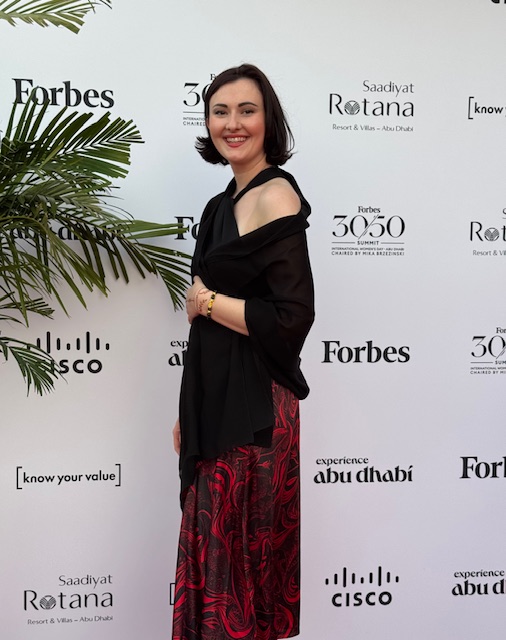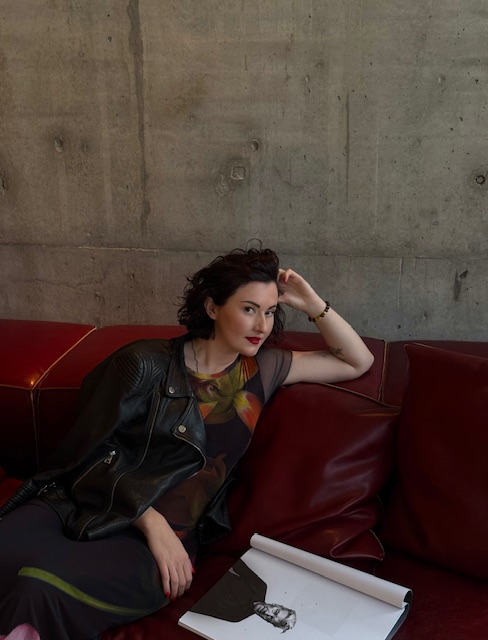We recently connected with Milica Krstic and have shared our conversation below.
Milica, appreciate you joining us today. We’d love to hear the backstory of how you established your own practice.
The beginning of my journey was not planned. It was born out of tragedy. In 2020 I lost two close friends to suicide. Those moments shook me to the core and forced me to ask what I could do to prevent others from experiencing the same kind of loss. Out of that pain came the idea of Safe Space. Two years later, in 2022, we officially started as a nonprofit. What began as a small initiative quickly grew into a global movement. With a team of more than 150 volunteer psychotherapists, we provided over 30,000 free sessions in 12 languages. I did not start Safe Space because I felt ready. I started because silence and waiting were no longer options.
In 2023 my work reached a completely new stage. I was recognized by Forbes on the 30 Under 30 list, and I was invited by the Crown Prince Foundation to speak about mental health at the Misk Global Forum in Saudi Arabia. Standing on that stage in front of leaders from around the world, I realized that what began as a very personal response to loss had become part of a much bigger global conversation.
That journey shaped who I am today, a Global Mental Health Strategist. My focus is no longer only on therapy sessions but on helping governments, institutions, and organizations build systems that protect well-being. Out of the lessons from Safe Space and other successful initiatives, I developed the Humanized Systems Index. It is a framework that measures how human dignity, safety, access, participation, and sustainability are built into the structures we all depend on.
If I could give one piece of advice to young professionals, it would be this. You do not have to wait for perfect conditions to begin. Sometimes the most meaningful work comes from the hardest moments. Start with your truth, protect your own well-being as you serve others, and trust that when your work is rooted in something real, it will grow beyond what you ever imagined.
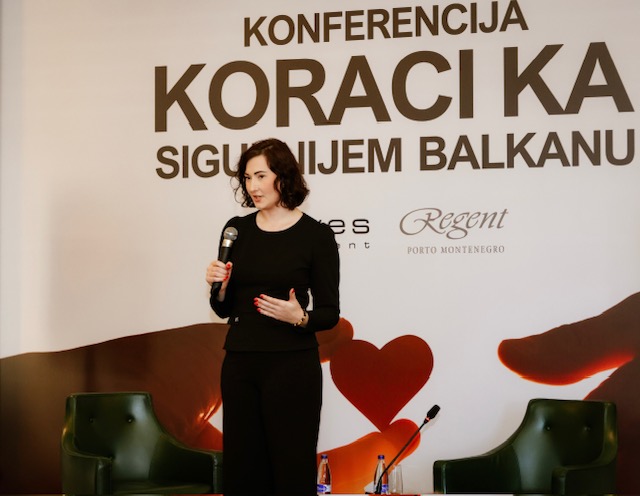
As always, we appreciate you sharing your insights and we’ve got a few more questions for you, but before we get to all of that can you take a minute to introduce yourself and give our readers some of your back background and context?
My background is in psychology, integrative psychotherapy, and digital marketing. My academic and professional path was not linear, but every step shaped who I am today and gave me the ability to bridge worlds that often remain separate. The psychological and therapeutic training gave me a deep understanding of human experience, while the digital and strategic side taught me how to scale ideas and create systems that reach people at scale. Together, these threads prepared me for the work I do now as a Global Mental Health Strategist.
Today my focus is on helping governments, organizations, and leaders integrate well-being into the very core of their systems. I created the Humanized Systems Index, a framework that makes values like dignity, safety, access, participation, and sustainability measurable. Through consulting, advising, research, and public speaking, I help decision-makers move from good intentions to real structures that people can trust.
What sets me apart is the combination of lived experience, clinical knowledge, and systemic thinking. Many people speak about mental health, but my work is about making it actionable at the level of systems and institutions. That is where real, lasting change happens.
I am most proud of contributing to a global shift in how leaders see their responsibility. Being invited to share this work on international stages and being recognized by Forbes are milestones, but what matters most is building frameworks that protect well-being for communities and organizations around the world.
What I want people to know about me and my work is simple. Healing before creating is essential. If we want to innovate, grow, and build lasting impact, we must design systems that value people first. That principle guides everything I do, whether I am working with a government, an organization, or a global audience.
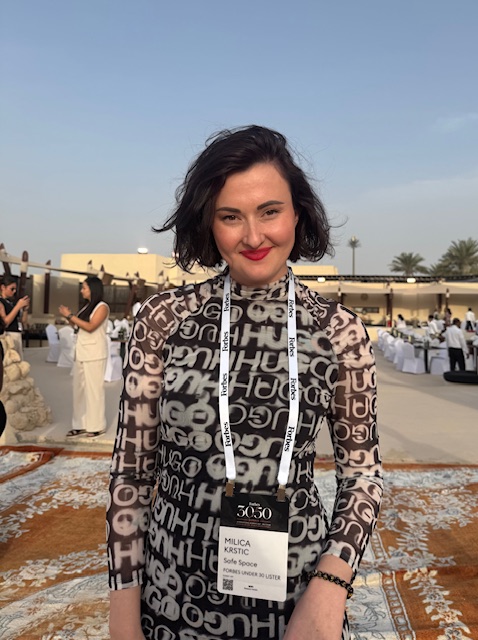
Any stories or insights that might help us understand how you’ve built such a strong reputation?
I believe reputation is never built overnight. For me, it was the result of years of dedication to a vision that was bigger than myself. From the very beginning, my work has been guided by a simple but powerful belief: mental health and well-being must not remain private struggles. They must be recognized as strategic priorities for communities, organizations, and governments. Staying committed to that vision, even when it was difficult, helped me establish authority within my field.
My reputation grew first through action. With Safe Space, I wanted to prove that real change is possible when you organize around dignity, access, and care. Coordinating over 150 psychotherapists to deliver 30,000 free sessions in 12 languages was not easy, but it showed the world that I was willing to go beyond theory and make ideas tangible. That kind of measurable impact-built trust with partners, institutions, and peers who saw that I was not only speaking about change but creating it.
Another part of building reputation was consistency. I showed up to every opportunity — whether it was speaking at global events, writing, or consulting — with the same clarity of message. Over time, that consistency helped people associate my name with a specific vision: humanized systems where well-being is protected and measured. Recognition by Forbes and invitations to global stages like the Misk Global Forum came as a result of that clarity and consistency, not the other way around.
What also set me apart was the combination of my background and my willingness to cross boundaries. I came from psychology and psychotherapy, but I also immersed myself in digital marketing, strategy, and systems thinking. That non-linear path gave me the ability to speak both the language of human experience and the language of leaders, policymakers, and organizations. This interdisciplinary approach made people see me not just as a practitioner, but as someone who could shape conversations at the highest level.
Most importantly, I never saw reputation as something to chase for its own sake. I focused on building credibility through service, through frameworks like the Humanized Systems Index, and through helping leaders measure what truly matters. Over time, people recognized that my dedication was not about personal branding but about a genuine commitment to transforming systems. That is what creates authority that lasts — when your words, your vision, and your actions all align over time.
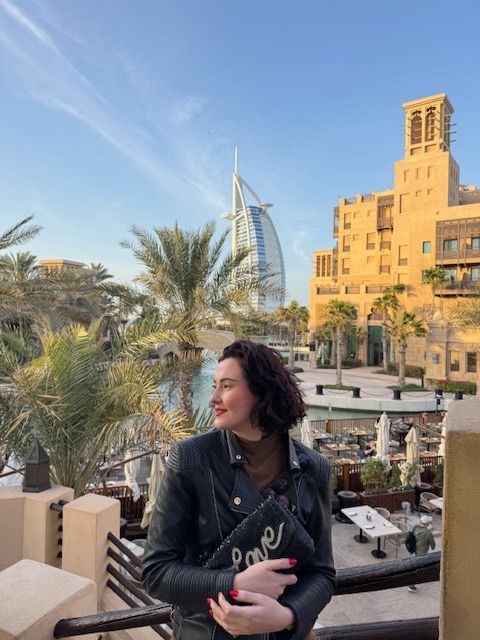
We often hear about learning lessons – but just as important is unlearning lessons. Have you ever had to unlearn a lesson?
The biggest lesson I needed to unlearn was the belief that in order to make an impact I had to sacrifice myself completely. For years I thought that the only way to prove my commitment was to give everything I had, even if it meant neglecting my own health and boundaries. I carried that belief into the early days of Safe Space. We were helping thousands of people, offering free psychotherapy sessions across the world, and from the outside it looked like a success story. On the inside, I was running on empty. I believed that my well-being was secondary to the mission.
The back story behind this is tied to how Safe Space began. In 2020 I lost two close friends to suicide. Those losses changed me forever. They created an urgency in me to do something meaningful, something that could save lives and protect others from the kind of pain I went through. That urgency pushed me forward but it also carried a heavy sense of guilt. Every time I slowed down, rested, or chose myself, I felt like I was betraying the mission. I believed that the more I gave up of myself, the more valuable my work would be.
With time I realized that I was falling into the same trap as the broken systems I wanted to change. I was creating a model of leadership that expected endless sacrifice and glorified burnout. That realization was painful, but it was also liberating. I began to understand that taking care of myself was not selfish, it was essential. If I was not grounded, if I was not healthy, then I could not lead in a way that was sustainable.
Unlearning that lesson changed the way I approach everything. It became the foundation of my philosophy today. Healing before creating is not a luxury, it is a necessity. It is also why I developed the Humanized Systems Index. I wanted leaders, governments, and organizations to have a framework that proves well-being is not an afterthought but the very foundation of progress.
The lesson I had to unlearn is that impact requires self-sacrifice. The truth I discovered is that impact requires alignment. When you are aligned with yourself, when you honor your own well-being, you can create work that does not collapse under the weight of exhaustion. That lesson was hard to learn, but it is the reason I can stand in my work today with clarity, strength, and vision.
Contact Info:
- Website: https://www.milicakrstic.com
- Instagram: https://www.instagram.com/millicakrstic
- Linkedin: https://www.linkedin.com/in/milica-krstic888/
